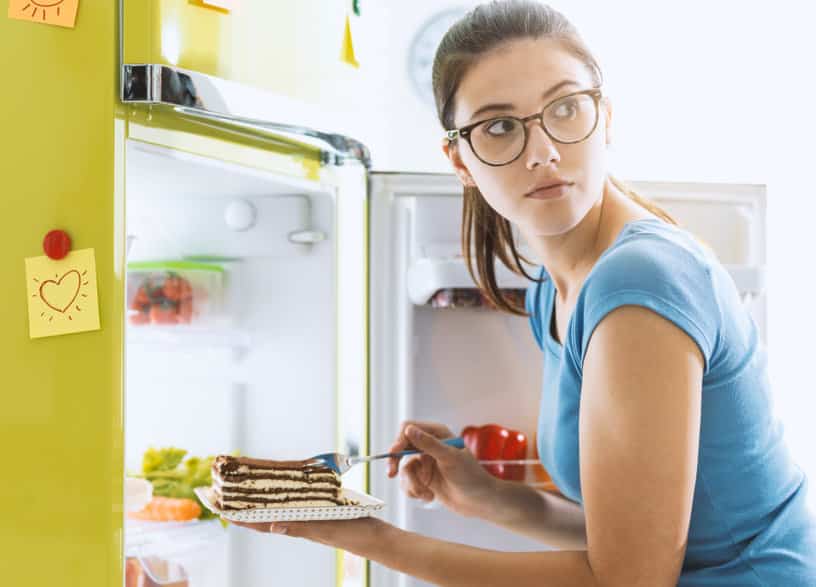By John Salak –
Potato chips, coconut ice cream, oatmeal cookies, pickles, burgers, wings, a Zabar’s babka or maybe that half-eaten milk chocolate Easter bunny that’s sitting on the kitchen counter. They are all waiting there, subliminally calling out to would be munchers as a means of either igniting or answering a craving—maybe both.
Are the indulgent hungry, weak, confused or anxious? Perhaps. But the one thing for sure is that they are not alone. More than 90 percent of people experience cravings, which is defined as an uncontrollable urge for a certain food.
Not all cravings are the same, but they usually involve processed foods that are high in sugar, salts and unhealthy fats, according to Medical News Today. The other common denominator is that after diving into that bowl of ice cream, chips or whatever, people tend to feel guilty about it.
Not surprisingly, cravings are attributed to a host of factors. The brain’s memory and reward functions can play a role when cravings are triggered by sights or smells. Medical News Today also reports that an imbalance of hormones, such as leptin and serotonin, can be a factor. Pregnancy and the hormonal changes it brings can be another cause. So too can anxiety, depression or stress, which can lead to a craving for comfort foods.
Now, however, there may be another trigger. Gut microbes may play a factor. At least this is what researchers at the University of Pittsburgh speculate after studying how different microbes influenced the food choices of mice.
“We all have those urges—like if you ever just feel like you need to eat a salad or you really need to eat meat,” explained Kevin Kohl, an assistant professor at Pittsburgh. “Our work shows that animals with different compositions of gut microbes choose different kinds of diets.”
Kohl and his colleagues came to this conclusion after feeding mice a cocktail of microorganisms from three species of wild rodents with very different natural diets. The impact was clear as the microbes changed the preferred diet of each group of mice.
The outcome shouldn’t be surprising because a person’s gut and brain are in constant communication and the introduction of new microbes can send the brain different signals as to what a body should eat.
Those needing more convincing should look no further that the relationship between turkey and naps on Thanksgiving.
“Tryptophan is an essential amino acid that’s common in turkey but is also produced by gut microbes. When it makes its way to the brain, it’s transformed into serotonin, which is a signal that’s important for feeling satiated after a meal,” reported researcher Brian Trevelline. “Eventually that gets converted into melatonin, and then you feel sleepy.”
Kohl and Trevelline admit there are lots of factors beyond gut microbes that go into brain signals and craving activations. They also acknowledge that their approach hasn’t been tested on people yet and that, in any case, individuals can override brain impulses. But their initial findings provide an intriguing start that may help people eventually deal with unhealthy food urges.
“It could be that what you’ve eaten the day before is more important than just the microbes you have,” Kohl said. “Humans have way more going on that we ignore in our experiment. But it’s an interesting idea to think about.”
It is also another insight to the importance of the gut.
“I’m just constantly amazed at all of the roles we’re finding that microbes play in human and animal biology,” Kohl said.













